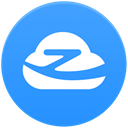Top eyeOS Alternative Options for Your Cloud Computing Needs
eyeOS is renowned as the Cloud Computing Operating System, offering users a comprehensive online environment to manage files, office applications, calendars, and contacts. Its appeal lies in its secure, always-available data and its open-source nature. However, for various reasons—be it specific feature requirements, platform compatibility, or a desire for a different user experience—many users seek a robust eyeOS alternative. This article explores the best options available today that can pick up where eyeOS leaves off, providing similar or enhanced cloud computing capabilities.
Best eyeOS Alternatives
Whether you're looking for advanced storage, improved collaboration tools, or a more specialized online desktop, these alternatives offer compelling features for anyone seeking a new cloud computing OS.

CloudMe
CloudMe is a Freemium service that excels in cloud storage and synchronization, making it an excellent eyeOS alternative for users prioritizing file management. Available across Mac, Windows, Linux, Android, iPhone, and Chrome OS, it offers cloud storage, cloud sync, file storage, file-sync, and even media and music streaming. It's a versatile choice for keeping your files accessible across all your devices.

qube-os
qube-os presents itself as a completely web-based Cloud Computing Operating System, accessible from any device and browser, making it a direct competitor and a strong eyeOS alternative. As a commercial offering available on Mac, Windows, Linux, Web, iPhone, and iPad, it focuses on file sharing, file transfer, and robust virtualization. It also supports WebDAV, offering a comprehensive online computer experience.

ZeroPC Cloud Navigator
ZeroPC Cloud Navigator offers a 'Lifetime Desktop in the Cloud,' allowing users to unify and manage all their digital content online. As a commercial eyeOS alternative, it's available on Web, Android, iPhone, Android Tablet, and iPad. Its key features include cloud storage, cloud sync, deep integration capabilities, and excellent photo organization, catering to users with extensive digital media.

Oneye
Oneye is a community-driven open-source project that takes over from the legacy eyeOS one series. As a free, open-source, web-based operating system, it's a natural eyeOS alternative for those who value community support and the foundational web desktop experience. It's built on PHP, making it appealing for developers and users familiar with the original eyeOS.

Doky
Doky positions itself as a Cloud Operating System Web 3.0, built on open standards and open-source principles. As a Freemium and web-based eyeOS alternative, it's a powerful platform for those looking for modern cloud computing. Its key features include Software as a Service (SaaS) and robust virtualization capabilities, offering a comprehensive web-based desktop experience.

CloudTop
CloudTop continues the legacy of CloudMe Desktop, specifically for web-based operating system functionality. As a free, web-based eyeOS alternative, it leverages CloudMe for storage and authentication. It offers cloud storage, cloud sync, virtualization, and supports WebDAV, making it a great option for users seeking a direct continuation of web desktop services.

MyGOYA
MyGOYA is a free online operating system that offers a personal desktop accessible from any internet-connected PC. This web-based eyeOS alternative includes essential features like e-mail, chat, file sharing, and a calendar, providing a straightforward and accessible cloud computing experience for basic needs.
Each of these eyeOS alternatives brings its unique strengths to the table, from comprehensive cloud storage and synchronization to full-fledged online operating systems. Consider your specific needs regarding features, platform compatibility, and open-source preference to find the best fit for your cloud computing journey.